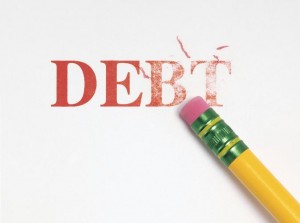 Credit ratings are used to determine the risk to the lender of loaning money to a borrower. However, the score by itself isn’t the only factor that lenders consider. Lenders also consider how much debt the borrower has and their ability to repay the debt. A high debt to income ratio is just as bad (or worse) in the eyes of a lender than a poor credit score.
Credit ratings are used to determine the risk to the lender of loaning money to a borrower. However, the score by itself isn’t the only factor that lenders consider. Lenders also consider how much debt the borrower has and their ability to repay the debt. A high debt to income ratio is just as bad (or worse) in the eyes of a lender than a poor credit score.
After filing bankruptcy a debtor’s credit score will drop. However, after the case is completed and the debtor receives a discharge, some or all of their debt is eliminated. When lenders consider their debt to income ratio they will appear to be a much better candidate for credit than they were before filing. In addition, the creditors that weren’t being paid before the bankruptcy case was filed are no longer reporting missed and late payments. If the debtor pays his bills on time moving forward then he will begin to establish a positive payment history, which will in turn cause his credit score to improve. In my experience, debtors see a 50 to 100 point increase in credit score the year after filing bankruptcy, assuming they are paying their bills on time and not incurring additional debt.
On the other hand, consider what will happen if you don’t file bankruptcy? Where will you be in a year if you don’t file Chapter 7? If you are making minimum payments on your credit cards then it could take you twenty or more years to pay off those debts. Most of each payment will be paid to interest, and by the time the cards are paid off you will have paid your principal the principal amount many times over. It is true that filing bankruptcy will temporarily hurt your credit, however if your goal is to be debt free with a good credit score, then you can usually reach your goal much faster by filing bankruptcy than If you struggle with paying off those high-interest loans.